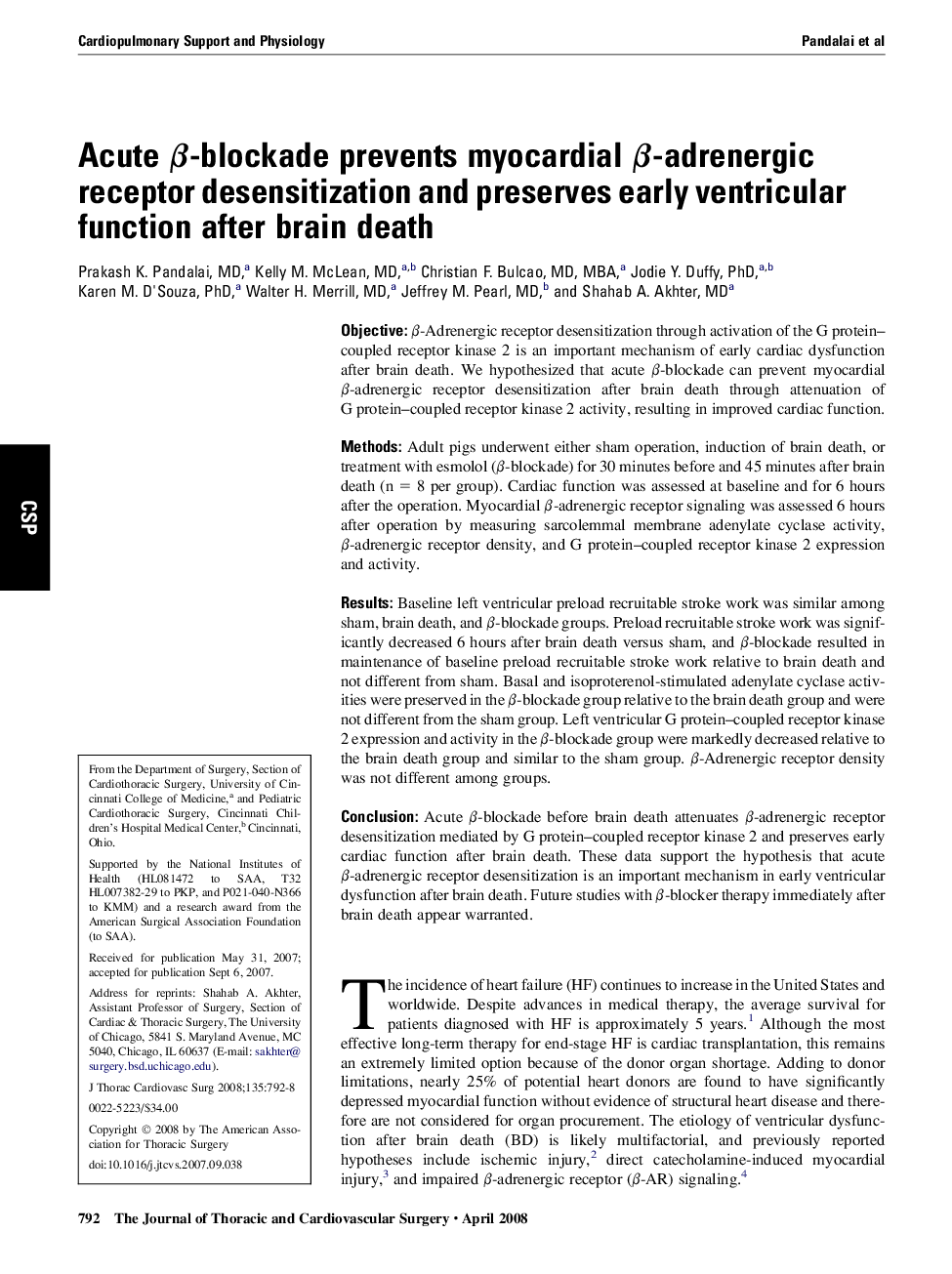| Article ID | Journal | Published Year | Pages | File Type |
|---|---|---|---|---|
| 2986588 | The Journal of Thoracic and Cardiovascular Surgery | 2008 | 7 Pages |
Objectiveβ-Adrenergic receptor desensitization through activation of the G protein–coupled receptor kinase 2 is an important mechanism of early cardiac dysfunction after brain death. We hypothesized that acute β-blockade can prevent myocardial β-adrenergic receptor desensitization after brain death through attenuation of G protein–coupled receptor kinase 2 activity, resulting in improved cardiac function.MethodsAdult pigs underwent either sham operation, induction of brain death, or treatment with esmolol (β-blockade) for 30 minutes before and 45 minutes after brain death (n = 8 per group). Cardiac function was assessed at baseline and for 6 hours after the operation. Myocardial β-adrenergic receptor signaling was assessed 6 hours after operation by measuring sarcolemmal membrane adenylate cyclase activity, β-adrenergic receptor density, and G protein–coupled receptor kinase 2 expression and activity.ResultsBaseline left ventricular preload recruitable stroke work was similar among sham, brain death, and β-blockade groups. Preload recruitable stroke work was significantly decreased 6 hours after brain death versus sham, and β-blockade resulted in maintenance of baseline preload recruitable stroke work relative to brain death and not different from sham. Basal and isoproterenol-stimulated adenylate cyclase activities were preserved in the β-blockade group relative to the brain death group and were not different from the sham group. Left ventricular G protein–coupled receptor kinase 2 expression and activity in the β-blockade group were markedly decreased relative to the brain death group and similar to the sham group. β-Adrenergic receptor density was not different among groups.ConclusionAcute β-blockade before brain death attenuates β-adrenergic receptor desensitization mediated by G protein–coupled receptor kinase 2 and preserves early cardiac function after brain death. These data support the hypothesis that acute β-adrenergic receptor desensitization is an important mechanism in early ventricular dysfunction after brain death. Future studies with β-blocker therapy immediately after brain death appear warranted.
